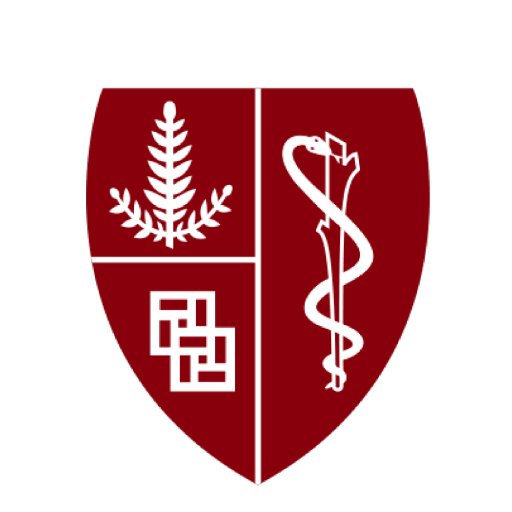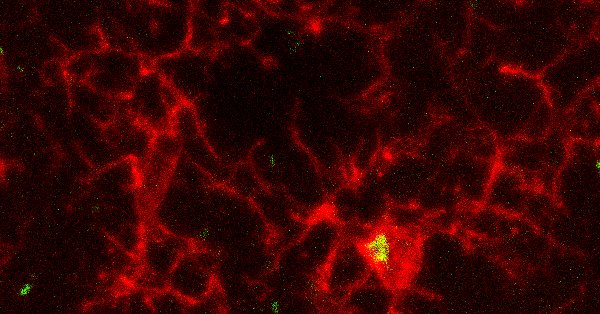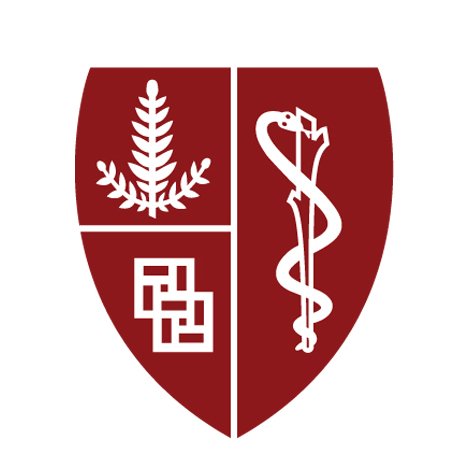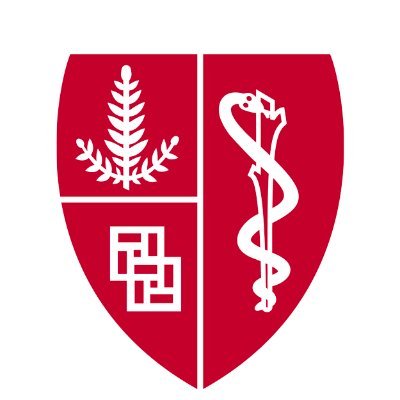
Stanford Medicine
@StanfordMed
Followers
367K
Following
1K
Media
3K
Statuses
23K
The official account of Stanford Medicine
Stanford, CA
Joined July 2009
The newest issue of Stanford Medicine magazine highlights new paths for chronic disease prevention, management and care. https://t.co/X73wGms63a
0
8
23
In this week's episode of the Health Compass podcast, Maya Adam discusses science’s most urgent ethical challenges with Drew Endy. From the misuse of AI to the promise and risks of synthetic biology in advancing health and medicine. https://t.co/EPhXQsYkYT
0
2
8
Stanford Medicine and their colleagues are uncovering what goes awry in older brains when spatial memory falters and whether these changes can be prevented. https://t.co/slG9rv8McN
med.stanford.edu
Studying mice of different ages, Stanford Medicine scientists and colleagues found that neurons involved in spatial memory become less reliable later in life.
2
10
33
Over the past decade, cell therapies have successfully treated many patients with blood cancers. Now Stanford Medicine researchers are translating that success to autoimmune disease, including through a first-of-its-kind trial for multiple sclerosis. https://t.co/iv7uVhl7G3
2
15
41
Nephrologist Shuchi Anand, along with a dedicated team of scientists, is investigating the underlying causes of a subtle yet serious kidney disease that impacts farm workers exposed to extreme heat conditions. https://t.co/8VEwSXcUX6
3
11
34
A classic but ignored Alzheimer’s hallmark — myriad oily droplets in brain cells called microglia — may help connect several of the disorder’s better known but not well understood features. https://t.co/5myzC7Gznd
med.stanford.edu
A classic but ignored Alzheimer’s hallmark — myriad oily droplets in brain cells called microglia — may help connect several of the disorder’s better known but not well understood features.
0
7
12
Stanford chemical biologist Laura Dassama is on a personal mission to design a simpler, more affordable sickle cell therapy. https://t.co/oJ7jKtorA1
1
5
23
Exercise might just be the best thing for you. In this episode of the Health Compass podcast, Euan Ashley, MD, PhD, discusses how working out, even in short bursts, can boost your health. Tune in for tips on how to keep your cells healthy. https://t.co/Vq1Gb08gid
1
9
26
Teams from @StanfordChild and @StanfordEng are using artificial intelligence and human ingenuity to build a diabetes dashboard that filters blood sugar data in real time, making it easier to identify patients who are struggling. https://t.co/afIBZcO63L
2
7
16
Welcome to the 161 incoming doctoral students from 18 bioscience disciplines who received their Stanford Medicine lab coats — a tradition marking the start of their PhD journey.
med.stanford.edu
A multidisciplinary group of bioscience students gets an honest pep talk from faculty leaders about the uncharted waters ahead — and how to navigate the inevitable bumps.
1
8
38
Stanford Medicine researchers are turning discoveries about diet and health into action -- making nutrition central to medical education and patient care. https://t.co/QO7e9IDQPT
stanmed.stanford.edu
Discoveries linking our diets to how well we feel are inspiring a new modern medicine reality that makes nutrition a core focus.
2
7
22
At Stanford Medicine, Euan Ashley is studying how exercise works at the molecular level, describing it as “the most powerful drug we’ve ever known.” https://t.co/umhS1U2TkK
stanmed.stanford.edu
The latest research on the effect of exercise on the body confirms the benefits of sitting less and moving more — and the sooner the better.
1
8
24
Researchers share their perspectives on how targeted treatment, emerging therapeutics and advanced technology are improving the quality of life for stroke, COPD or diabetes patients.
stanmed.stanford.edu
Stanford Medicine specialists in COPD, diabetes and stroke recovery reflect on ways research has led to improved care.
0
3
15
✨Dr. @natalielui22, a thoracic surgeon & researcher dedicated to improving lung cancer detection and treatment at @StanfordMed, talks about lung cancer screening 🫁 a& the importance of early detection in this podcast. #WomenInMedicineMonth✨ Listen here:
1
2
12
After exhausting his chemotherapy options, Jeanie Kortum’s husband was close to death, leaving her desperate for a new treatment. She found it in CAR-T cell therapy, which uses a patient’s own immune cells to fight cancer. She shares her journey of hope. https://t.co/0HwDffzHqN
0
7
23
Living with a chronic illness takes a toll on mental health, too. Psychologist Diana Naranjo’s advice: be kind to yourself, lean on those who understand, and remember that therapy helps. https://t.co/nOdrFeFfKh
2
4
19
Stanford Medicine experts are using discoveries about the intestinal microbiome and psychology to help patients with unexplained symptoms reset the relationship between their guts and their brains. https://t.co/rhdAxQwVJd
stanmed.stanford.edu
By factoring gut microbes and mental health into treatments, experts help patients build offramps from frustrating cycles of gastrointestinal distress
2
8
16
Discover how Stanford Medicine is breaking the cycle of chronic diseases with innovative prevention and diagnostic and treatment approaches that empower people to thrive despite their chronic illnesses. https://t.co/tfwTKlnSOG
stanmed.stanford.edu
Stanford Medicine experts are developing innovative approaches to preventing, diagnosing and treating chronic diseases so people can live healthier lives.
0
6
16
Congratulations to the three Stanford teams shortlisted for this year’s @CancerGrandChallenges. 🎉#CancerGrandChallenges. https://t.co/uTF5El26Jc
@Prof_Lundberg @SageJulien
@michelle_monje @KarlDeisseroth @jure @stanfordmed
@cncurtis
0
4
14
Alzheimer's disease: Neurons don’t just wear out like kneecaps or hip sockets. They’re built to last. But with age, bad things can happen to them. A lot of it is triggered by what’s happening to immune cells outside of the brain.
med.stanford.edu
Neurons don’t just wear out like kneecaps or hip sockets. They’re built to last. But with age, bad things can happen to them. A lot of it is triggered by what’s happening to immune cells outside of...
0
8
13












